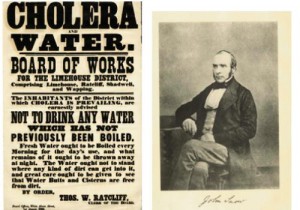Some think Medicare means utopia; we just need more of it. For them, change is bad. Listed below are 10 tired quips people use to stop change to Medicare (with responses).
1. You exaggerate the problems with Medicare.
Not to people dying on wait lists.
2. Medicare worked so far; why change now?
We need to adapt or go extinct.
3. We just need more money.
Budgets never precede greatness. Steve Jobs started in a garage.
4. You imply we – providers, bureaucrats, etc. – are a failure.
No, you’ve done very well even without the best tools. Imagine what we could accomplish with the right structure, aligned incentives, and patient involvement?
5. You have a hidden agenda.
That’s not fair. Look at the good folks working to improve things.
[BTW, this accusation works to undermine anything you want to oppose; it’s impossible to prove the absence of something!]
6. What about control? What about accountability? What about, what about, what about?
All great ideas raise questions; none can be answered with certainty beforehand.
7. This just sounds like [choose your favourite distasteful concept]. Favourite distasteful concepts include: American Medicine, big business, profiting on suffering, etc.
Actually, it’s not like any of those terrible things at all. It’s about giving patients what they need, when they want it, in a way that makes them feel valued.
8. You’re abandoning our core values.
Change upholds the values that started Medicare. We started with an insurance program for acute needs. We now have a warranty to cover routine maintenance. We need to get back to our original vision and build from there.
9. It won’t work here; we are different.
True. We are different, but people are the same everywhere. Canada ranks next to last on many measures (efficiency, service) against European countries. I’m sure we are smart enough to do better here.
10. This is a slippery slope towards American healthcare [or other scary idea].
Common sense provides a guardrail. We let 10 year olds watch TV, but we do not let them vote or drive a car.
Everyone agrees we need change; just not with Medicare. We need adult conversations that move beyond fear mongering, confusion, and character assassination. Change will be forced on us as the first baby boomers turn 80 in 2027. We’ve outgrown Medicare; we must change now, or watch it fail completely.



